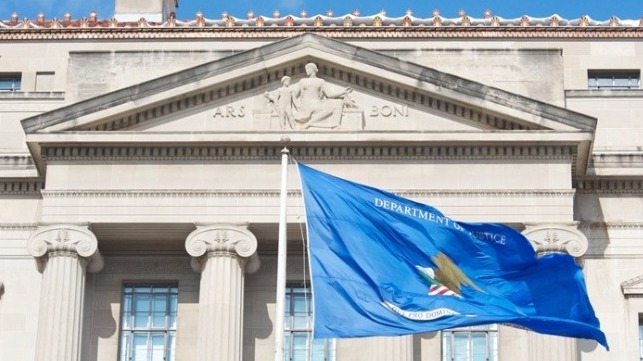FMC Gets Serious on Carrier Competition, Bringing in Dept. of Justice

To emphasize its growing interest in ocean carriers' pricing policies, the U.S. Federal Maritime Commission is highlighting its partnership with the U.S. Department of Justice's Antitrust Division, which enforces America's competition laws. On Monday, the two agencies signed their first-ever memorandum of understanding on enforcement responsibilities, and they announced that they are strengthening their cooperation.
“Collaboration between the Antitrust Division and the FMC is important to ensuring healthy competition in the maritime industry,” said Acting Assistant Attorney General Richard Powers. “Our partnership with the FMC is one of the many ways in which the Antitrust Division is prepared to play its role in achieving the competition objectives of the President’s Competition Executive Order.”
Last week, as part of a broad executive order targeting anticompetitive business practices and concentrated market share in the American economy, the Biden administration called for the Federal Maritime Commission to use its enforcement powers to crack down on carriers' allegedly excessive detention and demurrage charges. FMC has been investigating these charges since the previous administration, and several of its members have already signaled an intent to take enforcement action.
Monday's MOU builds on the executive order by establishing a process for the FMC and the DOJ Antitrust Division to review "law enforcement and regulatory matters" affecting competition in the shipping industry, the agencies said. Beyond matters of bureaucratic process, the announcement sends a clear signal to ocean carriers that American regulators will subject shipping to heightened scrutiny.
The DOJ Antitrust Division's primary responsibility is the criminal enforcement of the Sherman Antitrust Act, the Clayton Act and the Federal Trade Commission Act - broad competition laws with far bigger penalties than the FMC can wield on its own. The division was responsible for the investigation of price-fixing activity among car carriers in the 2010s; in a series of criminal cases, it secured criminal guilty pleas and landmark fines from marquee players like NYK, CSAV and Wallenius Wilhelmsen Logistics. Some of the executives involved in the scheme went to prison, including an NYK general manager who was sentenced to 15 months. The FMC participated in the investigation and pursued its own civil cases against the accused firms, but it secured far smaller settlement agreements with no admissions of wrongdoing.
"The Federal Maritime Commission has an important enforcement role as an economic regulator of a vital industry. As such, we will continually assess how the agency can improve its capacity to protect the integrity of the marketplace," said Dan Maffei, the chairman of the FMC. "This memorandum between the Commission and the Department of Justice supplements and strengthens the FMC’s ability to detect, address, and pursue violations of the law or anticompetitive behavior by those we regulate."
Though not explicitly mentioned, the MOU and the White House order come against a backdrop of skyrocketing freight rates and unprecedented disruption on core Asia-U.S. routes. Last week, Drewry's Shanghai-to-LA index setting a new record at nearly $10,000 for a forty-foot box, and anecdotal reports suggest that some shippers are paying $15,000 or more to get their cargo on board on headhaul routes. U.S. importers and consumers have historically enjoyed far more affordable shipping rates, typically below $1,500 per FEU, and the new surge in cost is one of the factors driving America's rising rate of inflation.
